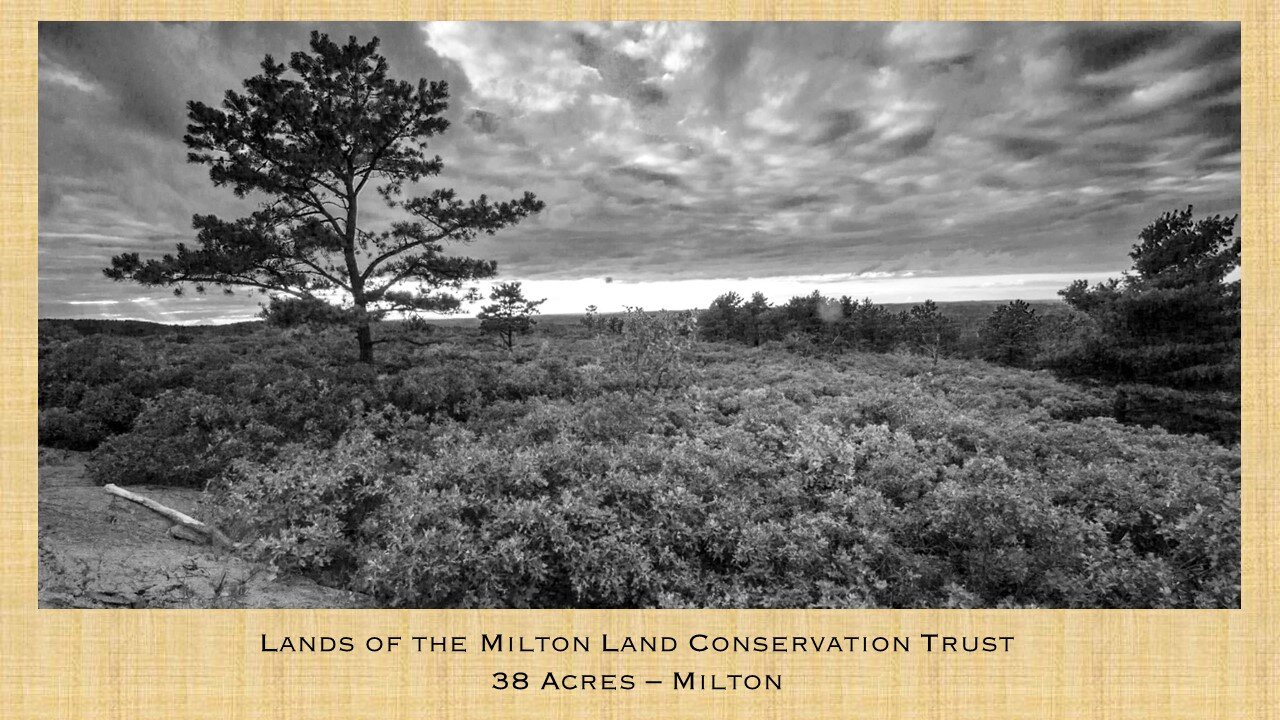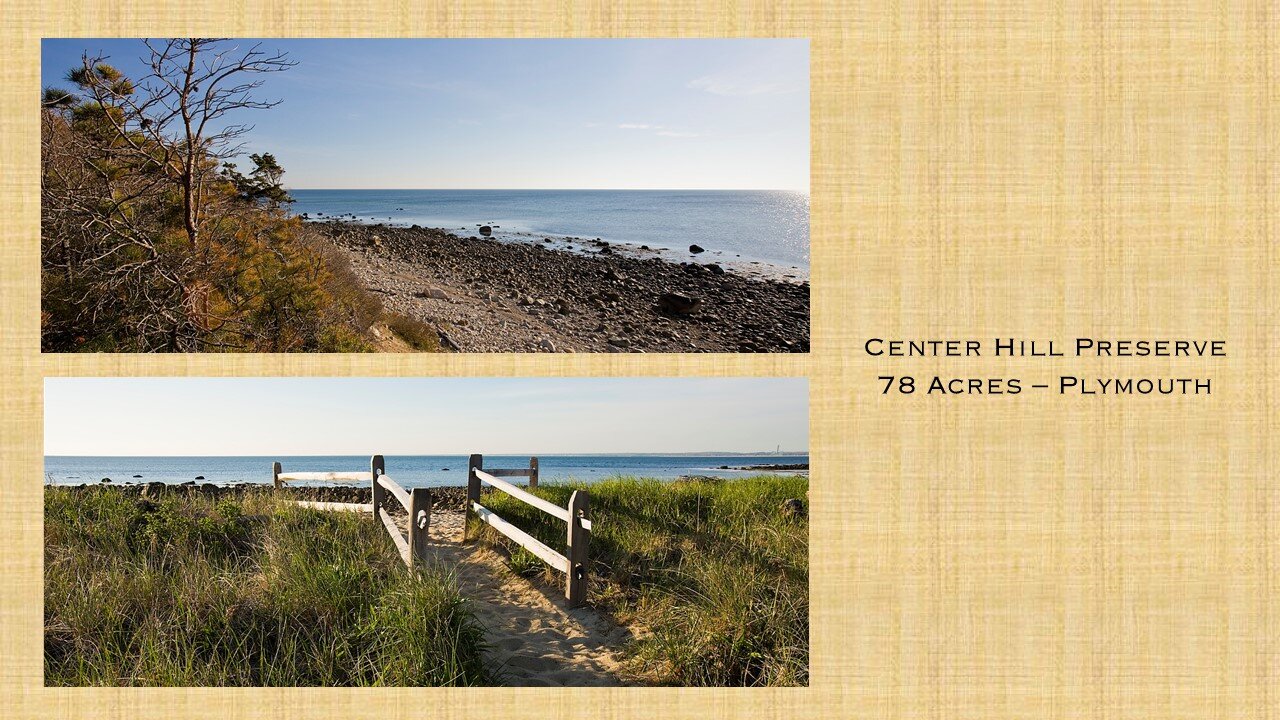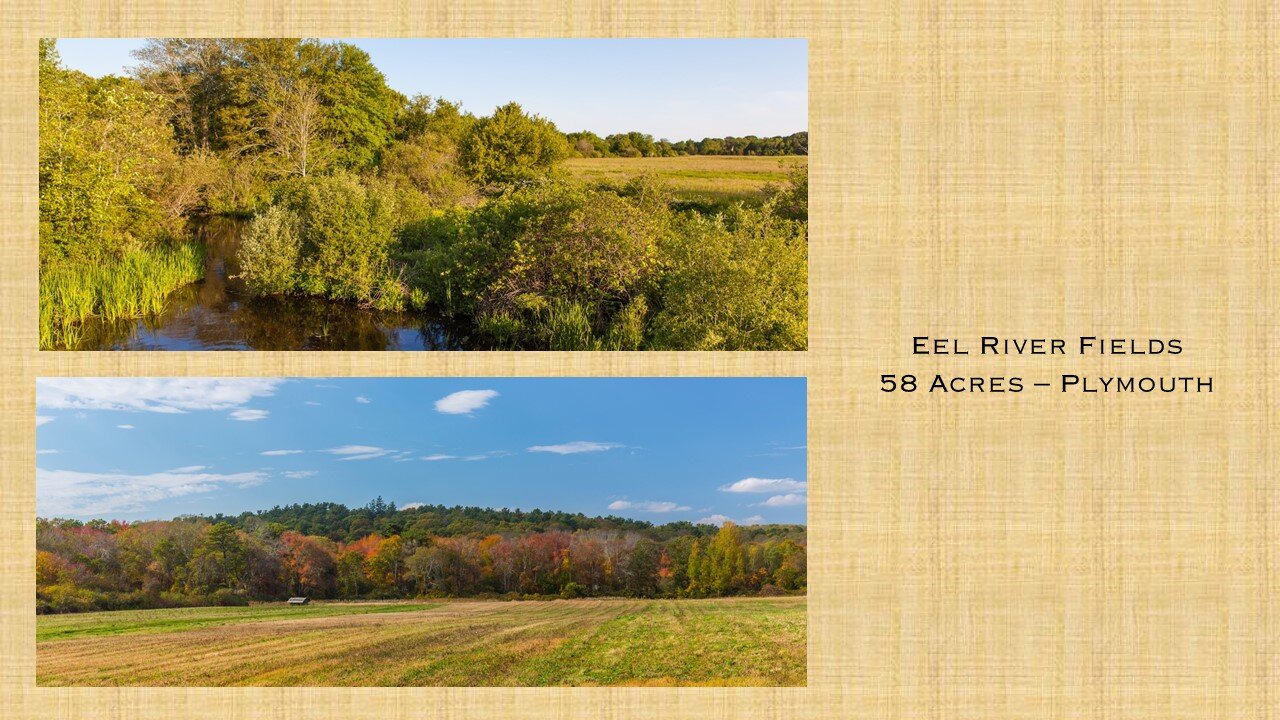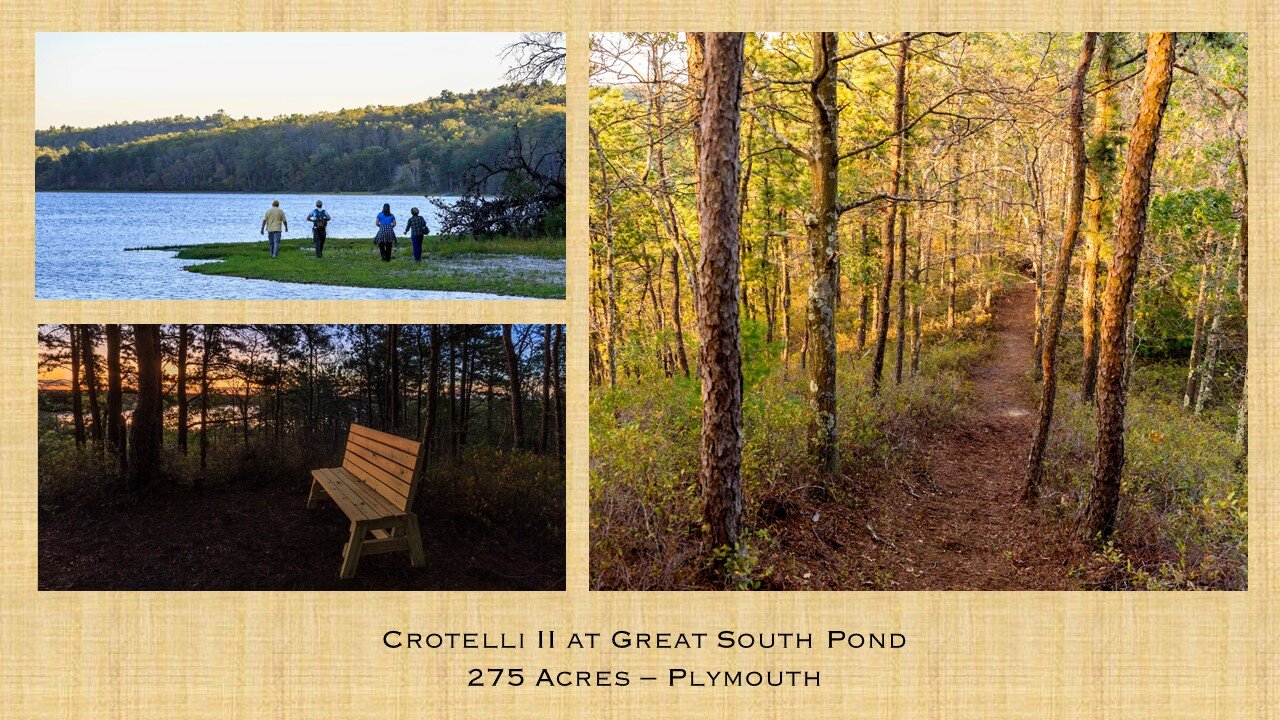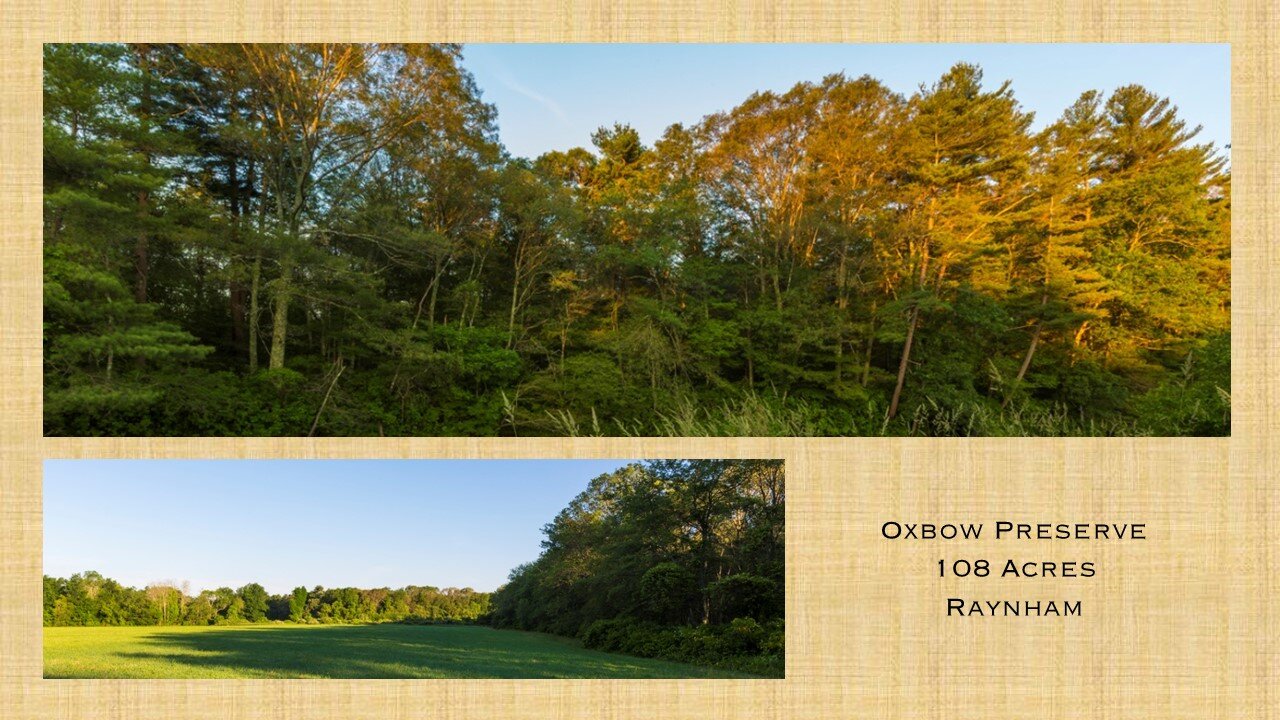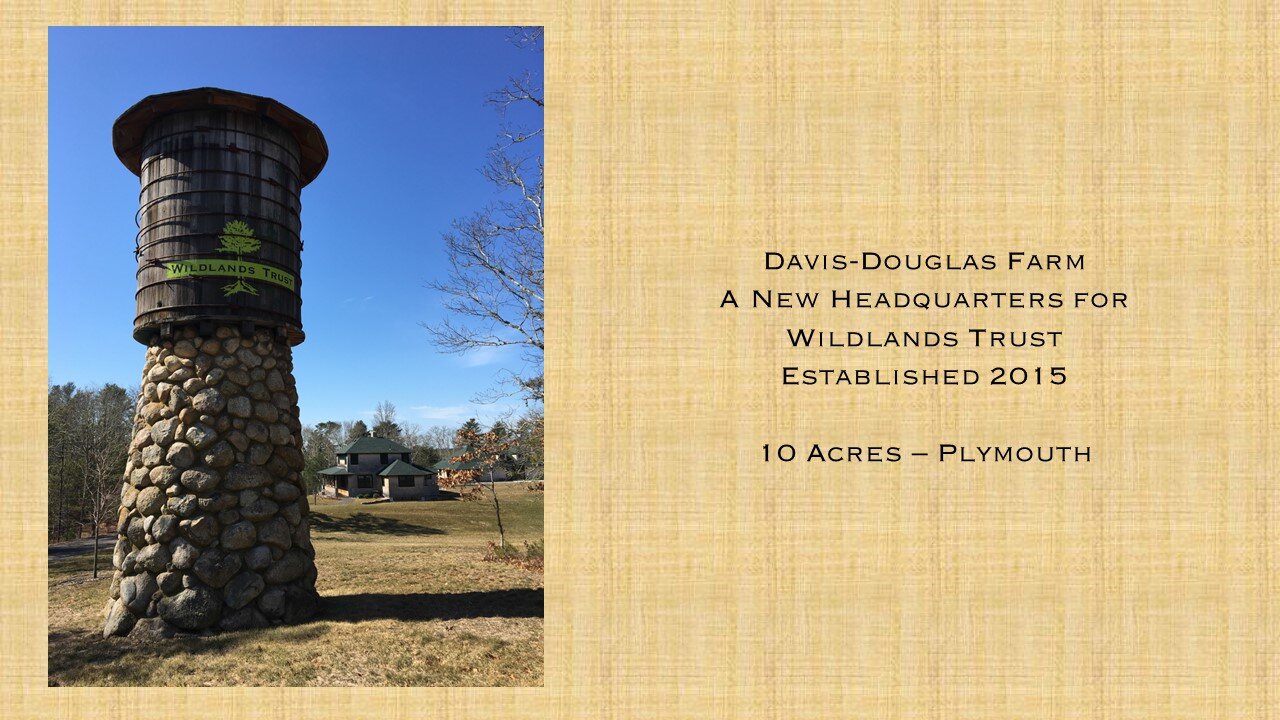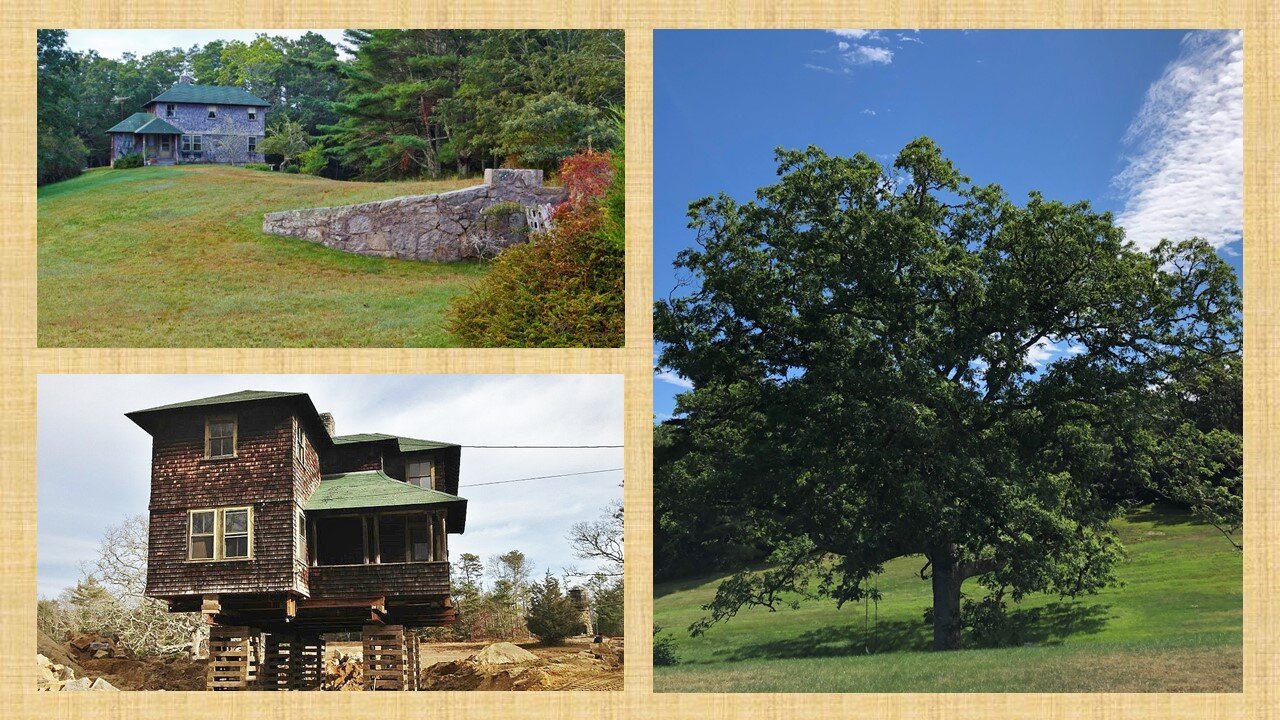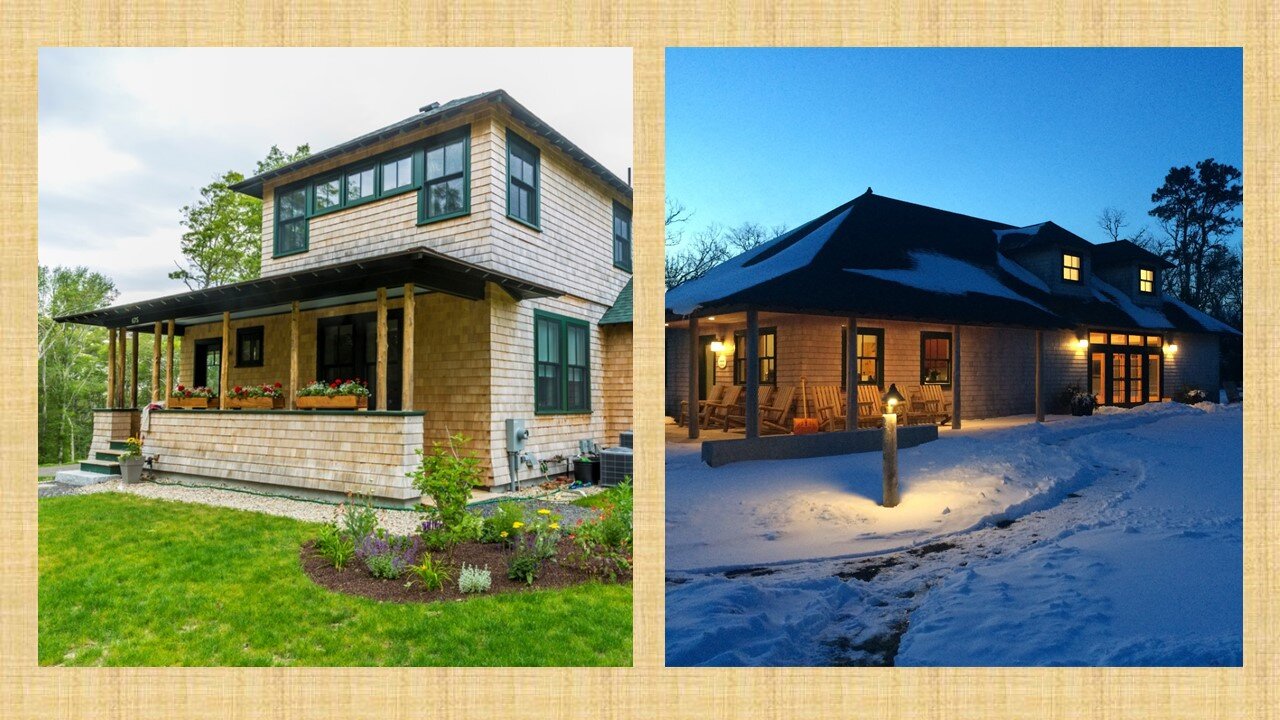By Stewardship Manager Erik Boyer
Mike Arsenault assists stewardship staff with raking debris from the trail.
This past September, with the help of nine Adopt-a-Preserve (AAP) volunteers, a new .4-mile trail was created at Pudding Hill Reservation in Marshfield. This project was the vision of AAP volunteer Dodie Frank who has been a steward at Pudding Hill for the past two years.
I met Dodie out at the preserve on a muggy, July morning to bushwhack and flag a new trail from the neighborhood trail entrance off Old Ocean Street to a dead-end trail on the west side of the property. We chose a route that consisted of rolling hills, old stone walls and thick stands of white pine saplings. This new connector turns the .5-mile cross-shaped trail into a 1.1-mile loop with varied topography. Over the course of three days in September, we cut through thick brush, established a rough trail tread, and then regraded sections of the trail to make for easier hiking. We then blazed the path and ensured it was ready for the first guided hike held at the property in mid-October.
Now, thanks to the hard work of many, a visit to Pudding Hill provides for a challenging, wooded, 30-minute hike on the north side of the property and a leisurely, short stroll through a meadow to an overlook spot on Chandlers Pond. I would like to give a special shout out to Dodie for her efforts and to Mike Arsenault, Stephen Connolly, Rob MacDonald, Janine Anderson, Bill Vickstrom, Roger Janson, Marilynn Atterbury and Kevin Walsh for helping out.















